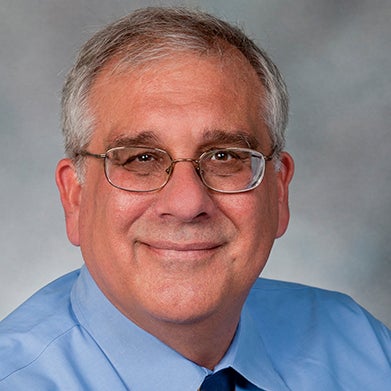Research Summary
The research in my group is broadly concerned with many-body phenomena in biology, chemistry and physics. A major theme is understanding systems where a large diversity of long-lived states is involved, necessitating the use of a statistical characterization of an energy or attractor landscape. The most notable examples are glasses, liquids, biomolecules and biomolecular regulatory networks. In the area of protein folding we are interested both in describing folding kinetics in the laboratory and the development of bioinformatically based schemes for predicting structure from sequence using computer simulation. A key concept is that the energy landscape of a foldable protein looks like a rugged funnel. This idea guides the development of both simple folding kinetics models and structure prediction algorithms. Similar issues of attractor landscapes also arise in higher order biological processes, such as gene recognition and genetic network regulation, which we also study. The energy landscapes of supercooled liquids and glasses also present interesting problems. We have shown how a new approach based on "random first order transitions" explains many quantitative relations found empirically both in liquids and under cryogenic conditions where quantum effects play a role. The same ideas show promise in the study of systems as different as high temperature superconductors, polymer assemblies, and microemulsions. They are also useful for describing the three-dimensional structure and dynamics of chromosomes and the interior of living cells.
Biography
Peter Wolynes is the D.R. Bullard-Welch Foundation Professor of Science, with appointments in the departments of Chemistry, Physics and Astronomy, BioSciences and Materials Science and Engineering at Rice University. He graduated with an A.B. from Indiana University in 1971 and received a Ph.D. in Chemical Physics from Harvard University in 1976. He spent most of the year as a postdoctoral fellow with John Deutch at the Massachusetts Institute of Technology. He then spent from Fall 1976 to 1979 as an Assistant Professor in the Chemistry department at Harvard. In 1980 he moved to the University of Illinois, eventually becoming the Center for Advanced Study Professor of Chemistry, Physics and Biophysics. In 2000 he moved to the Department of Chemistry and Biochemistry at the University of California, San Diego. In 2011 he was named D.R. Bullard-Welch Foundation Professor of Science, with appointments in the departments of Chemistry, Physics, Biosciences and Materials Science and Engineering at Rice University in Houston, Texas.
Professor Wolynes has been a visiting scholar for extended periods at the Max Planck Institute for Biophysical Chemistry, the Institute for Theoretical Physics (UCSB), the Institute for Molecular Science (Okazaki, Japan) and the Ecole Normale Superieure (Paris, France). He was a Fogarty Scholar-in-Residence at the National Institute of Health, Hinshelwood Lecturer at Oxford, and the Linnett Visiting Professor at Cambridge.
Wolynes’s work across the spectrum of theoretical chemistry and biochemistry has been recognized by the 1986 ACS Award in Pure Chemistry, the 2000 Peter Debye Award for Physical Chemistry of the ACS, the Fresenius Award, the Joseph Hirschfelder Prize and the ACS Award in Theoretical Chemistry 2012. For his work on the energy landscape theory of protein folding he received the 2004 Biological Physics Prize from the American Physical Society (now called the Max Delbrück Prize) and the 2008 Founders Award of the Biophysical Society. He received an honorary Doctor of Science from Indiana University in 1988 and an honorary doctorate from Stockholm University in 2010. He was elected to both the National Academy of Sciences and the American Academy of Arts and Sciences in 1991. He is a fellow of the American Association for the Advancement of Science, the American Physical Society and the Biophysical Society. Wolynes has been elected to the American Philosophical Society, the German Academy of Sciences "Leopoldina," and as a Foreign Member to the Royal Society of London and the Indian National Science Academy. He was named an Einstein Chair Professor of the Chinese Academy of Sciences in 2010.

